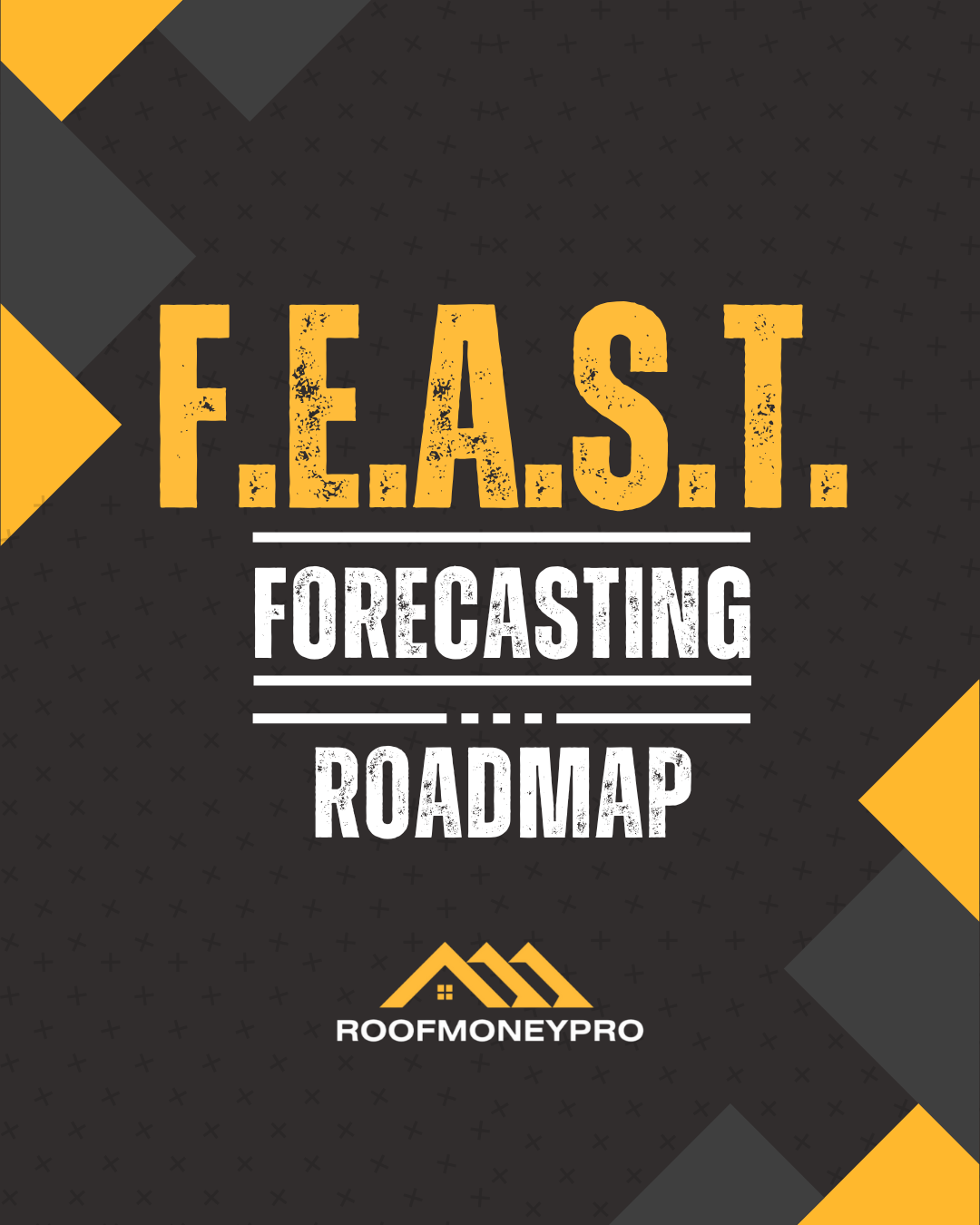Beyond Basic Calculators: Advanced Tools for Building Wealth Projections
Oct 19, 2025
Spreadsheets Are Great—But They're Just the Start
Most people use calculators to figure out how much they can save, invest, or retire with. It could literally be ideas and numbers on a notepad.
But if you really want to build wealth with confidence, you need more than a basic estimate—you need a clear, flexible plan that evolves with your life.
I've used everything from spreadsheets to very intuitive and robust financial planning software that can analyze your investments and identify gaps at the push of a button.
The good news? There are plenty of other advanced tools available to the general public—many of them free or low-cost—that can give you accurate wealth projections, optimize your strategy, and help you make smarter financial decisions.
Whether you're just getting started or fine-tuning a $1M retirement plan, these tools will change how you see your future.
Why Wealth Projection Tools Matter More Than Ever
In my early twenties I used to wing it with my financial planning. Just threw money at my Roth IRA and hoped for the best. Then during my undergrad finance courses I wised up and got a clearer grasp on planning concepts - and I realized my "retire at 65" plan was basically a prayer if I stayed on the current course.
Factors that make guesswork risky
That's when I finally got serious about wealth projection tools. Not the basic calculators that assume 7% returns forever, but the advanced ones that factor in market volatility, tax implications, and different time horizons.
Here's what blew my mind: I was actually over-saving for retirement but under-saving for my kids' college fund. The tool showed me how to rebalance without sacrificing either goal. Plus, it modeled different scenarios - like what happens if I get laid off for six months or if healthcare costs spike.
Confidence grows when your plan is backed by real numbers
The confidence thing is real too. Instead of lying awake wondering if I'm on track, I can see exactly where I stand. When inflation jumped last year, I didn't panic because my projections already accounted for it.
It's one thing to give yourself a range based on historical averages and it's another entirely to have those assumptions validated with actual data.
My biggest mistake was waiting so long to use these tools. Early on when just getting started as a licensed investment advisor was when I was first introduced to some pretty cool options.
These tools allowed me to identify if clients had wasted three years either hoarding cash out of fear or spending too freely because they had no clue what was actually enough.
Good data enables good decisions.
With lifestyle inflation creeping up and markets being unpredictable, guesswork just doesn't cut it anymore. I could give much clearer and actionable advice. Some of those very same tools are an essential part of my current financial coaching business. Real numbers beat gut feelings every time.
Key Features to Look for in a Wealth Projection Tool
Trust me, not all wealth projection tools are created equal. I've played around with the more basic calculators that told me I'd be a millionaire by 50 - turns out they completely ignored taxes and inflation.
First must-have: adjustable income and expense tracking. Your salary's gonna change, you may have a variable income, your spending will evolve. You need a tool that lets you update your promotion timeline or that new mortgage payment without starting from scratch.
Scenario planning (e.g. early retirement, market dips)
Everyone has a plan until they get punched in the face ~ Mike Tyson
Scenario planning is an absolute priority for me. Some people think you sit down and make a plan and execute as if life isn't going to throw curve balls. When COVID hit and I couldn't get out the house, I could instantly see how delaying retirement by two years would keep me on track but I was having trouble stomaching that thought.
Fortunately I was able to pivot with a new plan by using my remaining GI Bill to earn my Master's degree and get paid by the government to go to school tax-free.
Good tools let you model "what if I retire at 62 instead of 65", "what if I leave my employer and my business takes off in year", or "what happens if the market crashes right before I need the money."
The tax optimization suggestions are gold. My tool showed me I was missing out on $1,200 annually by not maxing my HSA first before putting extra into my Roth. Those little tweaks add up to serious money over decades.
Integration with real-time financial accounts
Visual graphs matter more than you'd think. Seeing that net worth line trending upward keeps me motivated during tough months. Measuring progress is an essential item that can't be compromised.
Real-time account integration is a close 2nd which means no more manual updates - the tool pulls from my actual bank and investment accounts. It's the difference in having to carry a notebook and manually recording every transaction. Nothing wrong with that, and I highly recommend it during the beginning to establish awareness, but this is the next phase when the training wheels come off.
Especially if you have a spouse. Tie all of the accounts together so you can manage household spending and get crystal clear on where you stand.
There's a fine balance between basic and advanced. Skip anything that feels too simple. Wealth building doesn't have to be complex, and your tool should reflect that reality.
Top Advanced Wealth Projection Tools
1. NewRetirement PlannerPlus
This has become many peoples go-to after they realize basic calculators aren't cutting it. This thing digs deep into healthcare costs, tax implications, and even lets you model crazy scenarios like "what if I buy a rental property at 55?" The cash flow charts alone are worth the subscription – you can literally see your money flowing in and out year by year.
- Deep retirement modeling, tax features, and healthcare projections
- “What if” scenarios and long-term cash flow charts
- Ideal for DIY investors and early retirement planners
2. Empower (formerly Personal Capital)
(Yeah, they changed from Personal Capital) and it hooked me with their real-time dashboard. Seeing all accounts in one place is honestly addicting, but their retirement readiness score is really an eye opener. You may be paying way more in fees than you thought – their analyzer could save you hundreds annually.
- Real-time net worth dashboard
- Retirement readiness score + fee analyzer
- Great for tracking assets and projecting growth
3. RightCapital
For the hardcore planners, RightCapital is like having a financial advisor's software. The Social Security optimization feature alone helps figure out the best claiming strategy, which could mean an extra $47,000 or more over your lifetime.
- Professional-level software used by advisors
- Includes Social Security optimization and Roth conversion strategies
- Good for those wanting to replicate advisor-level insights
4. ProjectionLab
- Clean interface and highly customizable scenarios
- Income layers, housing decisions, FIRE modeling
- For spreadsheet lovers who want more automation
surprised me with how clean everything looked. If you're planning for FIRE or have multiple income streams, this handles complexity without making your brain hurt. Perfect for the "I love spreadsheets but want something prettier" crowd.
5. Google Sheets Templates
A well-designed spreadsheet transforms from a simple grid of cells into your personal financial command center. By organizing your income, expenses, savings goals, and investment projections in one centralized location, you create a living document that grows with your financial journey.
I've seen countless clients achieve breakthrough moments when they first see their complete financial picture laid out clearly, with formulas automatically calculating their progress toward major goals like homeownership or retirement.
- Complete financial visibility
- Automated calculations and projections
- Customizable goal tracking
6. Moneyguidepro
After testing probably a dozen different platforms over the past few years, this is the one that actually delivers results. Trust me, I've wasted hours on tools that looked fancy but couldn't handle real-world complexity. This one is my work horse and I use it for all of my coaching clients.
I've included it last because it's not available to the general public, or at least it's not as cost-effective, but I make its features available to my own clients. You can do pretty much everything from detailed goal planning, scenarios, investment analysis, and risk mitigation.
It's like a Honda an Ferrari all in one depending on how you want to drive.
- Real-time net worth dashboard and account integrations
- Clean interface and highly customizable scenarios
- Customizable goal tracking
How to Use These Tools for Real-Life Planning
Okay, so you've got a solid wealth projection tool - now what? I made the mistake of running one scenario and calling it done. Big error.
Run multiple scenarios right off the bat. I modeled three different paths: staying in sales, switching to consulting, and early retirement at 45. Turns out the consulting route actually got me to my goals faster because of the tax advantages, even with less steady income.
The monthly check-ins are crucial. I used to update mine quarterly, but life changes fast. When my wife left the military and we about to have our first kid in the same year, waiting three months to adjust our projections would've thrown everything off.
Collaborate with a spouse or financial coach
Here's something I wish I'd done sooner: involve your spouse from day one. We were both running separate tools with different assumptions about our spending. Led to some awkward conversations when I thought we needed to save $2,000 more monthly and she thought we were already on track.
I get that some spouses avoid the topic completely, or worse, hide things from one another but it's a mission critical topic.
During my years I've found that even if someone isn't a "numbers" person they certainly have a vested interested in what they want their life to look like together. Oftentimes the conversation turns to simply having fun exploring all of the cool things they want to do and have together.
Then the person who takes on the numbers has a clearer picture on what they need to do and the other person is happy that they were involved and their needs were acknowledged.
Set milestones and track against your projections
Set specific milestones too. Instead of just "be wealthy someday," I track against hitting $100K net worth, then $250K, then $500K. When I hit each milestone six months early, it confirmed my projections were conservative and I could actually increase my lifestyle a bit.
The tool's only as good as the effort you put into keeping it current. Garbage in, garbage out - but real data in gets you real results.
Common Mistakes People Make (And How These Tools Fix Them)
Overestimating investment returns – use realistic settings
This is one of those lessons you don't want to learn the hard way. Back in 2019, I plugged in an 12% annual return into my retirement calculator because that's what the stock market averaged over 30 years, right? Wrong move.
When the market tanked in 2020, reality hit fast. Now I stick with 6-8% returns max in my calculations – way more realistic and I sleep better at night. Most modern retirement calculators actually default to sensible return assumptions, which saves you from my rookie mistake.
Forgetting inflation and taxes – these tools auto-include it
Here's what really got me though: I completely forgot about inflation eating away at my future dollars. $50,000 in retirement sounds decent until you realize it'll buy what $30,000 does today after 20 years of 3% inflation.
The good news? Today's retirement planning tools automatically factor in inflation rates, plus they'll show you how taxes will impact your withdrawals.
Ignoring healthcare costs – built into most tools now
Healthcare costs were another blind spot. I figured Medicare would cover everything – turns out the average couple needs about $315,000 just for medical expenses in retirement. Yikes.
Failing to update regularly – set a 15-minute monthly check-in
The biggest game-changer was setting up a monthly 15-minute review. I mark it on my calendar like a dentist appointment, and it keeps me from those "oh crap, I haven't checked this in two years" moments.
Predict Your Path—Then Optimize It
Look, I used to lay awake at 2 AM wondering if I was saving enough. Was $500 a month gonna cut it? Should I bump up my investment contribution to 15%? The anxiety was killing me.
Then I started using these advanced wealth projection tools, and honestly, it changed everything. Instead of crossing my fingers and hoping for the best, I could actually see my financial future mapped out in real numbers.
Turns out I needed to save an extra $200 monthly to hit my goals – but at least I knew the exact target.
The best part? These tools let you play "what if" scenarios without any real-world consequences. Want to see what happens if you retire at 62 instead of 65? Just adjust the slider. Curious about maxing out your Roth IRA? Plug in those numbers and watch your projection change instantly.
I'm not gonna lie – some of the initial projections were pretty sobering. But knowing where I stood gave me the power to actually do something about it. I shifted money around, increased my savings rate, and even picked up some side income.
Now I sleep better knowing I'm not just throwing money into accounts and hoping it works out. Don't guess your future – map it out and take control.


